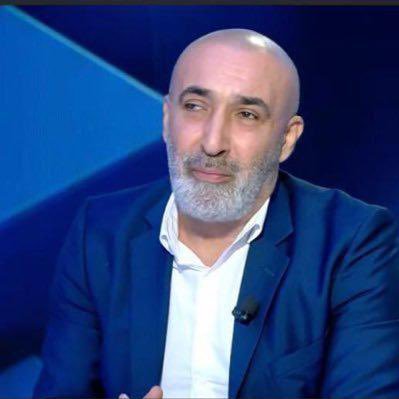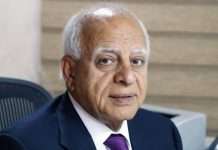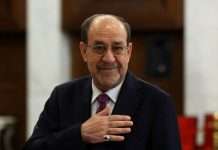A Sacred Weapon with a Cultural Effect
Mohammed Al-Amin/Nidaa Al-Watan / 29 December 2024
(Free Translation by Elias Bejjani)
سلاح مقدس بمفعول ثقافي
محمد الأمين/نداء الوطن/29 كانون الأول/2024
إن منح الدور الثقافي في مؤسسات الدولة لمتحزبين ينطلقون من أيديولوجيات شمولية لا تتماشى مع طبيعة لبنان المتنوعة، هو الذي يؤدي إلى تدمير تدريجي لفكرة الانتماء للوطن. هذا التدمير لا يقتصر على تغيير الخطاب الثقافي فحسب، بل يمتد إلى تكوين العقول وتوجيهها نحو الانقسام بدلاً من الوحدة، مما يشكل خطراً عميقاً على بناء الدولة والمجتمع.
فعندما تُقدَّم الأفكار الحزبية على أنها أفكار وطنية، يُضَلَّل الجمهور اللبناني ومنهم الطلاب لتفقد الهوية اللبنانية قيمتها مع مرور الوقت، ويصبح النفوذ الحزبي والميليشيوي أكثر تغلغلاً في المؤسسات التعليمية والثقافية، مما يجعل الهوية اللبنانية تابعةً لأجندات حزبية ضيقة، ومجردة من أي انتماء وطني حقيقي. هذا التوجه لا يهدد فقط الحاضر، بل يضع الأسس لانهيار فكري شامل يمتد تأثيره على الأجيال المقبلة.
إن استرجاع الثقافة اللبنانية إلى دورها الوطني مسؤولية يجب أن تضطلع بها الدولة، لأنها من المحطات الأساسية للانطلاق نحو لبنان المعافى من الأفكار المقدسة وشريعة الأحزاب والجماعات التي لا ترى في لبنان وطناً جامعاً، بل منصة لتحقيق مصالحها الخاصة. ولتحقيق هذا الهدف، لا بد من تحرير المؤسسات الثقافية والتعليمية من قبضة الحزبية، وفصل وزارة الثقافة والجامعات ومراكز الحوار التي تحاور نفسها فقط لعدم قبولها بالتنوع والاختلاف عن أي تبعية سياسية. ويجب أن تُعاد صياغة معايير اختيار القيادات الثقافية لتكون مستقلة وقادرة على فهم الخصائص الفريدة للوطن، بحيث لا يُسمح لأي جهة بفرض فكر متطرف أو حزبي على المجتمع.
وإصلاح المناهج الدراسية يشكل أيضاً خطوة حاسمة في هذا الاتجاه، إذ يجب تنقيحها من أي محتوى يروج لأيديولوجيات حزبية أو يخدم أجندات ضيقة. هذا العمل يجب أن يُوكل إلى لجنة مستقلة بعيدة عن هيمنة الأحزاب أو الحركات السياسية التي غالباً ما تفرض وجهة نظرها لخدمة مصالحها، فعندما يُترك العقل ليخضع لهذه الأيديولوجيات، يصبح أداة لتعزيز الخضوع لمنطق القوة على حساب منطق الدولة والقانون.
الأخطر من ذلك أن هذا التدمير الثقافي لا يقتصر على الفكر والعقل، بل يمتد ليصبح مبرراً وغطاءً لشرعنة وجود السلاح خارج إطار الدولة. يُروَّج لهذا السلاح تحت شعارات “المقاومة”، مما يعمق الانقسام ويقوض سيادة الدولة، فيتحول السلاح غير الشرعي إلى جزء من المنظومة الثقافية المُختزلة في أجندات حزبية.
إنها من الأزمات الخطيرة التي ساهمت في وصول لبنان إلى هذا الحد من الانقسام والتشتت وتغير وجهته الثقافية إذا لم تُحرر الثقافة من قبضة الحزبية، وهذا الخطر لن يتوقف بالمسايرة وتوزيع المقاعد والمناصب على من يقدم جماعته على لبنان ومشروعه الخاص على الوطن.
A Sacred Weapon with a Cultural Effect
Mohammed Al-Amin/Nidaa Al-Watan / 29 December 2024
(Free Translation by Elias Bejjani)
Granting cultural authority within state institutions to partisans rooted in totalitarian ideologies that contradict Lebanon’s diverse essence inevitably leads to the gradual erosion of national belonging. This destruction transcends merely altering cultural discourse; it penetrates the very formation of minds, steering them towards division rather than unity. Such a trajectory poses a grave threat to the fabric of the state and society.
When partisan ideologies are disguised as nationalist narratives, the Lebanese public, including students, is misled. Over time, this erodes the value of Lebanese identity, allowing partisan and militia influence to dominate educational and cultural institutions. The result is a Lebanese identity stripped of genuine national affiliation, reduced to serving narrow partisan agendas. This dangerous trend not only undermines the present but also sows the seeds of intellectual collapse, jeopardizing future generations.
Restoring Lebanese culture to its rightful national role is a responsibility the state must shoulder. Culture is a cornerstone for building a Lebanon free from the grip of so-called sacred ideas and the dominance of parties and groups that perceive Lebanon not as an inclusive homeland but as a mere platform for their interests. To achieve this, it is imperative to liberate cultural and educational institutions from partisan control. The Ministry of Culture, universities, and dialogue centers—currently entrapped by political subordination and intolerance for diversity—must be disentangled from such influences.
Reforming the standards for selecting cultural leaders is essential. These leaders must be independent individuals who grasp the unique identity of Lebanon, ensuring that no single party imposes extremist or partisan ideologies on society.
Curriculum reform is equally critical. Educational content must be purged of partisan propaganda or elements serving narrow agendas. An independent committee, free from the influence of political parties, should oversee this process. When reasoning is subordinated to partisan ideologies, it ceases to be a tool for enlightenment and instead becomes a mechanism for perpetuating submission to the logic of force over the principles of state and law.
Even more concerning, this cultural erosion extends beyond intellectual realms. It becomes a justification for legitimizing weapons outside state authority, cloaked under the banner of “resistance.” This narrative deepens societal divisions, undermines state sovereignty, and transforms illegal weapons into integral elements of a cultural system manipulated by partisan agendas.






















